Cruise economy gaining novel momentum by offering enhanced benefits to consumers
Since the start of this year, Shanghai’s cruise industry has experienced a robust revival. The domestic cruise vessel “Adora Magic City” embarked on its inaugural commercial journey, marking a significant milestone. Moreover, esteemed global cruise operators like Royal Caribbean and MSC have resumed homeport operations in Shanghai, further underscoring the city’s resurgence in the maritime tourism sector. The General Administration of Customs has devised the Customs Measures for Advancing the Cruise Industry to streamline the replenishment process of international cruise ships at ports. This includes introducing direct supply of cruise materials to minimize costs for cruise companies.
Shanghai Customs has recently organized a policy briefing, where it was revealed that lower operating costs for businesses are likely to result in price adjustments that will benefit consumers. That is, next year’s cruises departing from Shanghai will reap the advantages of the new policy. Cruise lines will comprehensively consider adjusting boarding prices, and the prices of duty-free goods on board are also expected to be lowered!
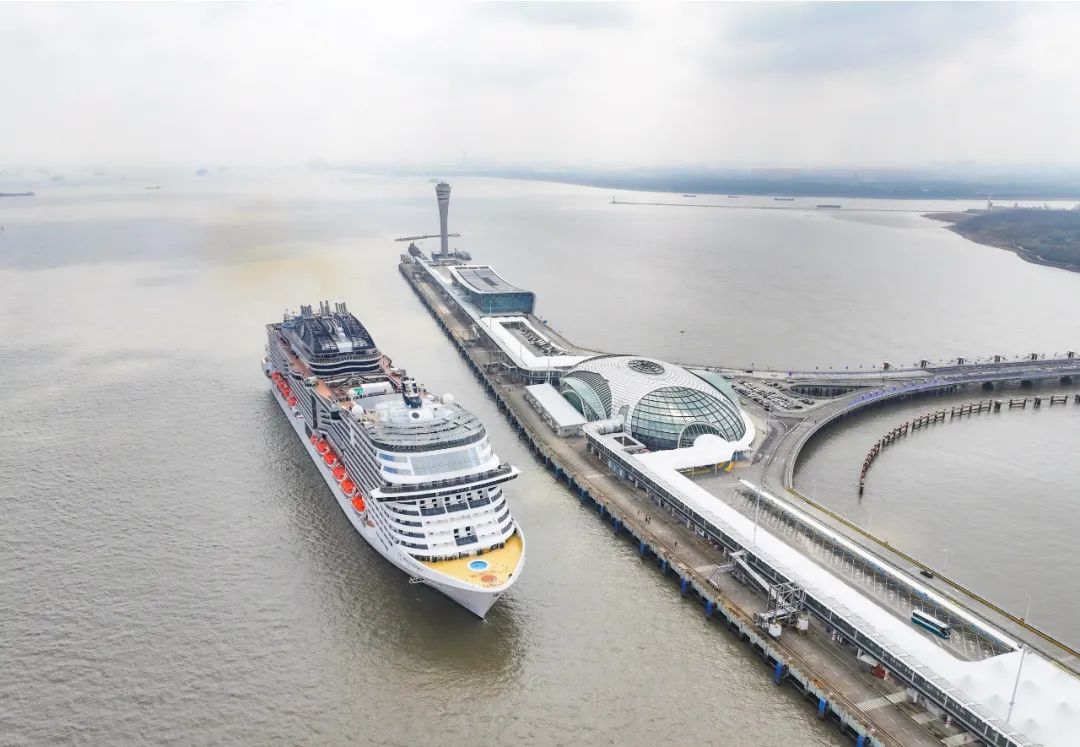
What do the measures say?
Measures of Customs to Support the Development of the Cruise Industry
1. Allow more direct supply channels of materials for cruise ships
For both Chinese and foreign cruise ships navigating international routes, a direct supply method is introduced to streamline the provision of essential materials necessary for smooth cruise operations, in addition to the existing ship supply channels. The customs will provide unique codes for levies and exemptions on supplies to cruise ships declared as direct supply materials, streamlining supervision processes. For ship supply materials declared for export in the form of cruise ship direct supply materials, enterprises can handle export tax rebates in accordance with regulations. Enterprises can process export tax rebates for cruise ship direct supply materials declared for export. Unless there are special circumstances, it is unnecessary to repeatedly go through the procedures for such materials.
2. Simplify the quarantine licensing and supervision procedures for animal and plant products
The customs will oversee the transit quarantine model for monitoring imported animal and plant-based food and fruits declared as materials supplied directly to cruise ships, excluding those prohibited from entry due to epidemic regulations. When completing customs declaration procedures for importing materials, enterprises must furnish quarantine certificates from exporting countries’ animal and plant quarantine authorities. With these certificates, they can avoid the need to seek entry animal and plant quarantine permits as well as access quarantine and registration requirements for overseas food production enterprises.
The above-mentioned materials shall be loaded and transported in containers, and may be stored in bonded supervision places or special customs supervision areas after passing the quarantine of the means of transport or packaging at the entry port. Except for special circumstances, the customs do not issue quarantine inspection instructions during the entry process, and only conducts one quarantine inspection when materials are delivered to cruise ships under the condition of ensuring quarantine safety. Containers can supply materials to cruises multiple times, provided that those containing surplus materials are stored in bonded supervision areas or special customs supervision zones after being sealed by customs.
3. Optimize the inspection and quarantine process of inbound bonded goods for cruise supply
For bonded goods that have cleared the initial inspection and quarantine procedures upon entry into the country, there is no need for another inspection or quarantine process when they supply materials to cruises, unless there are identified quarantine issues upon departure from the country or if the food has exceeded its shelf life.
4. Facilitate the supply of domestic commodities
For domestic commodities (excluding hazardous chemicals and dangerous goods) declared for export as direct supplies to cruise ships, the port customs may conduct pre-export declaration scrutiny. Approved shipments will receive an electronic base account from the port customs after passing the comprehensive assessment.
5. Support the supply of domestic tobacco products
The restrictions imposed on the re-entry of domestic tobacco products into bonded warehouses and special customs supervision areas after leaving the country have been lifted. If domestically produced tobacco products that have been exported abroad are required to be brought back for supplying cruise ships, they can be declared upon entry into either the bonded warehouse or the special customs supervision area. Subsequently, these goods will be exported to the ship in accordance with bonded regulations.
6. Facilitate supply of alcohol and cosmetics to cruise ships
For alcohol and cosmetics belonging to hazardous chemicals declared in the form of direct supply materials from cruise ships, the dangerous category, packaging category, United Nations Dangerous Goods Number (UN Number), and United Nations Dangerous Goods Packaging Marking (Packaging UN Marking) (except for limited quantities, exceptional quantities of packaging and exemptions from international regulations) in the dangerous goods information column should be truthfully filled in when declaring imports. It is not necessary to declare the attributes of dangerous goods and the name of inspection and quarantine (supervision category), and there is no need to provide samples of the Declaration of Conformity of Import Hazardous Chemicals Enterprises, Chinese hazard publicity labels or Chinese safety data sheets. For domestically produced alcoholic beverages and cosmetics, export declarations do not necessitate samples of Declaration of Conformity of Export Hazardous Chemicals Manufacturers, hazardous characteristic classification reports, hazard publicity labels, or safety data sheets.
7. Facilitate the supply of drugs and medical devices to cruise ships
The Measures allow for essential medical supplies and equipment to safeguard the health and well-being of both crew members and passengers aboard cruise ships, in the form of ship supply materials or direct cruise ship supplies. Drugs and medical devices provided to cruise ships must comply with state export licensing regulations. The required licensing certification documents must be submitted to customs for inspection as per the relevant regulations.
8. Allow cruise equipment and parts to disembark for maintenance
Except for those barred from entry by laws and regulations, cruise parts requiring disembarkation for repair and maintenance, as well as facilities and equipment utilized on cruise ships, must follow the prescribed procedures for repairs. This may involve handling repair items in accordance with existing regulations or having them disembarked to an enterprise possessing bonded maintenance qualifications for necessary upkeep. Bonded maintenance within comprehensive bonded areas will be conducted as per current regulations.
9. Facilitate the entry and customs clearance of cruise ships and passengers
Customs are urged to conduct pre-arrival quarantine procedures for cruise ships by following the requests of the ship’s responsible party or agent. This will expedite the quarantine process for both the ship and its passengers, ensuring compliance with all necessary quarantine measures and facilitating smooth entry and customs clearance.
10. Optimize customs clearance supervision procedures for cruise ships built through processing trade
In the context of constructing cruise ships within China under processing trade conditions, the export control process will be streamlined and enhanced. Formal customs clearance procedures can be conducted without the actual departure of the cruise ship from the country for the present time. Subsequently, the customs can handle the reconciliation and closure of processing trade accounts based on customs clearance data from the export declaration form.
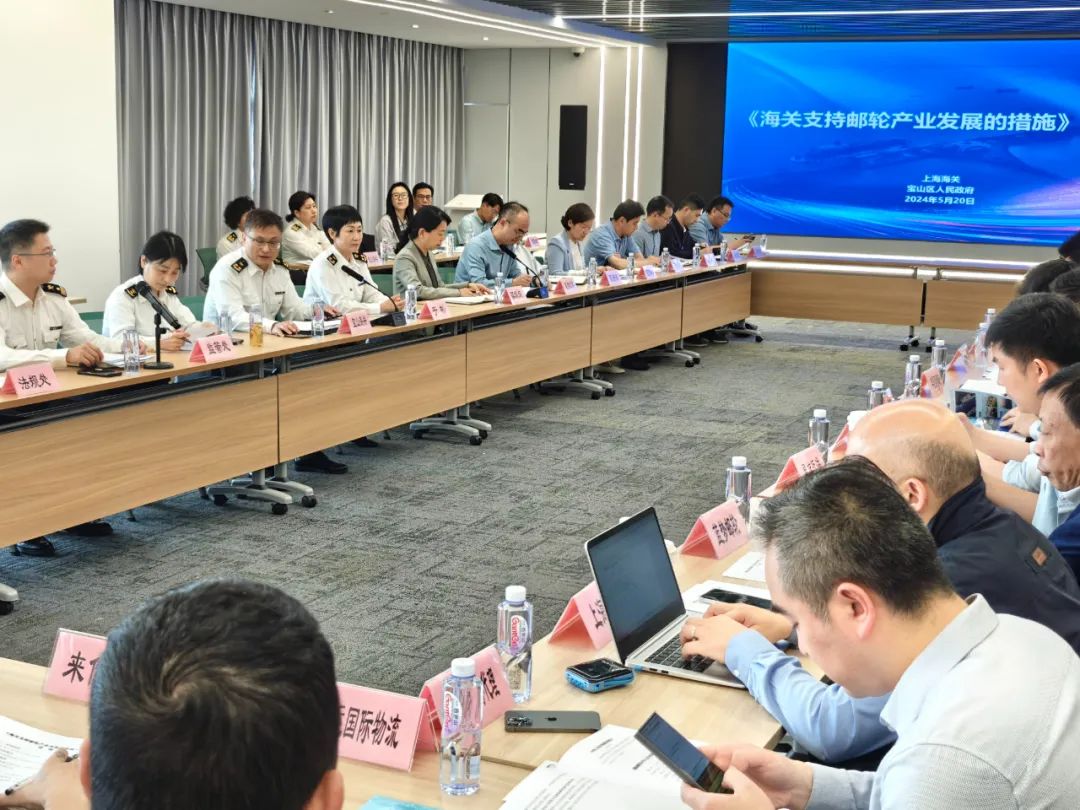
To sum up,
out of the 10 customs support measures, 7 pertain to providing cruise ship materials. These measures not only streamline the process but also bolster the supply of domestic tobacco products, medicines, and medical equipment. The crucial addition is the direct supply method for cruise materials.
hen Lihua, Chief of the Comprehensive Section of Baoshan Customs, emphasized, “In terms of the distribution of measures, the optimization and facilitation of the supply of cruise ship supplies is the direction of key support from the Customs. Direct supply materials refer to items purchased by enterprises, whether from domestic or overseas sources, and delivered directly to the cruise ships. Using direct supply materials expands the range and variety of materials available. Furthermore, upon formal declaration, enterprises can benefit from export tax rebates through their own customs declaration form.”
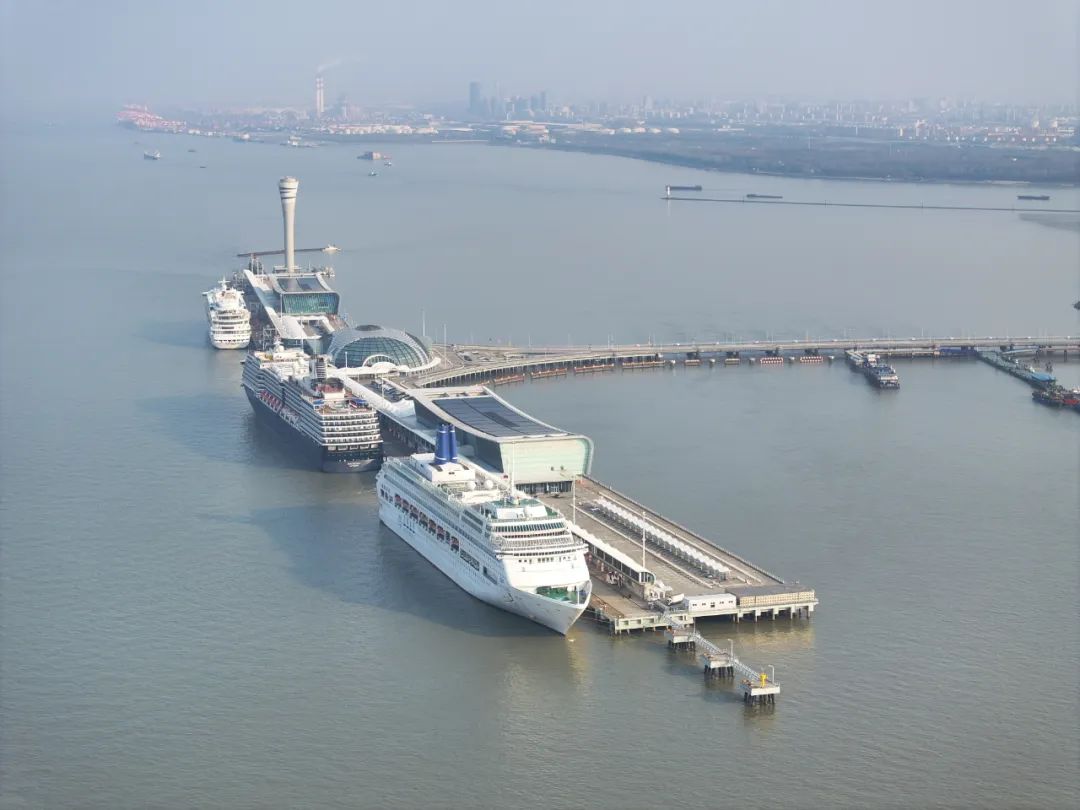
The shift from a non-tax refund model to a tax refund model will undoubtedly boost China’s cruise industry and enhance the competitiveness of domestic companies in cruise material supply. The procurement and supply chain head at Adora Cruises Limited mentioned that the recent policy changes have streamlined customs procedures for declaring materials on board, cutting transshipment processes and lowering operational costs significantly.
The new policy permits subcontracting and transshipment of containers in bonded areas, catering perfectly to cruise ship operations. This policy allows overseas materials to enter the bonded area directly, minimizing excessive transshipment on supply ships. It also facilitates cost savings for supply ships.
Previously inaccessible items such as medicines, medical supplies, low-risk chemicals, perfumes, bonded cigarettes, and alcohol can now be purchased domestically. This breakthrough in policy has incentivized major cruise ship owners to increase their procurement from local businesses.
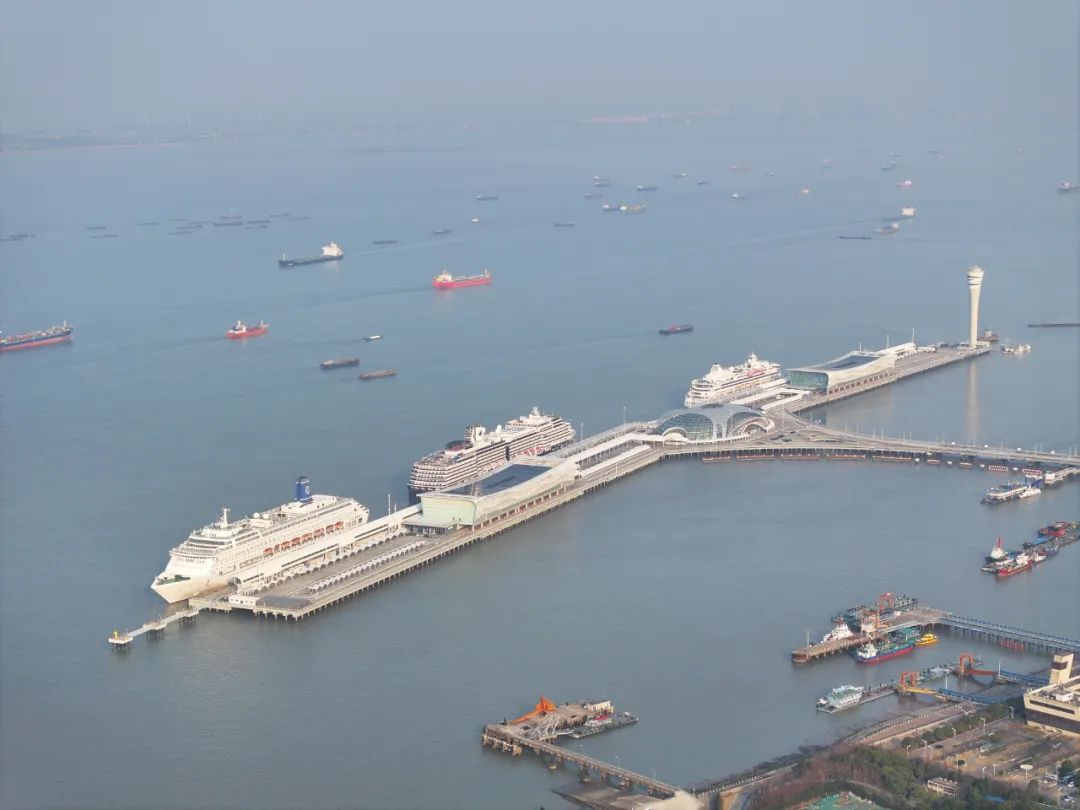
The decrease in supply chain costs will lead to reduced passenger ticket prices at Adora Cruises Limited. The procurement and supply chain head mentioned that next year, cruise lines can adjust ticket prices more flexibly. Additionally, duty-free product prices on board are anticipated to drop. This ripple effect will boost local cruise consumption.
In the past, many of our duty-free commodities and materials could not be transshipped at domestic cruise terminals. The new policy allows for direct transshipment of duty-free goods from ports in Japan and South Korea to China, streamlining the supply chain for local duty-free materials and significantly cutting logistics costs. On one hand, it enhances the development of our local cruise port services, while on the other, it drives down duty-free prices on cruise ships.
I anticipate a minimum 15% reduction in overall costs thanks to optimized logistics and storage expenses as well as tax rebates. The cost savings in the supply chain will directly translate to lower cruise ship operating expenses, which will ultimately result in more affordable services for our customers.
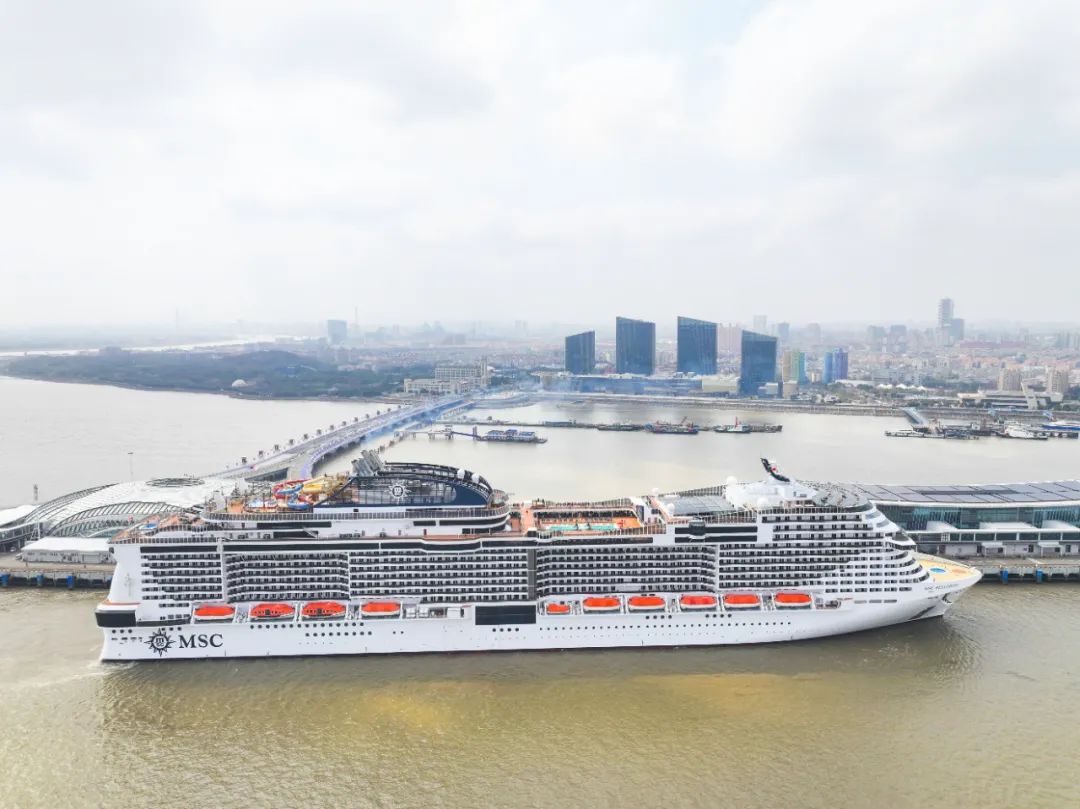
Since the return of international cruise ships last year, Wusongkou International Cruise Port has once again flourished with its bustling atmosphere. As per data from Shanghai Customs, 214 cruise ships were monitored in the previous year, carrying a total of 385,800 passengers for inbound and outbound voyages. Jiang Ruiqin, director of the Binjiang Management Committee in Baoshan District, anticipates that Shanghai Wusongkou International Cruise Port will reach its previous peak tourist numbers next year. This year, an estimated 1.5 to 1.6 million inbound and outbound visits are anticipated, representing just half of the previous peak volume.
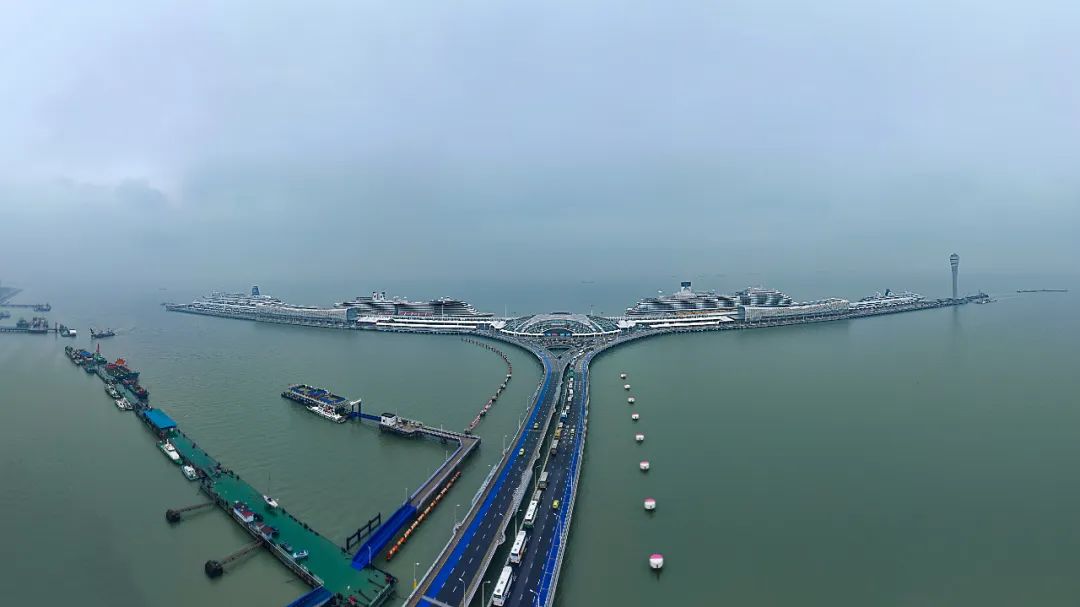

宝山汇APP

上海宝山微信

上海宝山微博